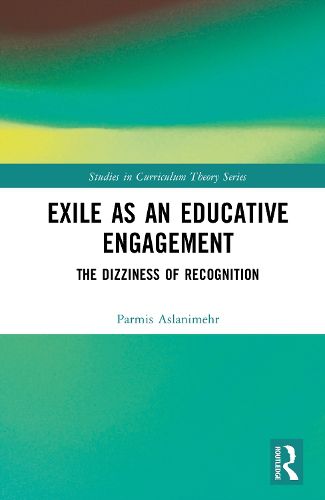Readings Newsletter
Become a Readings Member to make your shopping experience even easier.
Sign in or sign up for free!
You’re not far away from qualifying for FREE standard shipping within Australia
You’ve qualified for FREE standard shipping within Australia
The cart is loading…






This book explores the concept of exile, experienced not as a physical displacement, but as a subjective experience of disconnection from the Other.
It further clarifies the notion of exilic subjectivity, whereby a hidden facet of the self-ineffable to both the Other and the Self-causes a distance between self-comprehension and external perception. In doing so, it poses a challenge to recognition theory's assertion that self-understanding occurs through interactions with Others. By engaging with the writings of Georg Wilhelm Friedrich Hegel, Charles Taylor, Axel Honneth, Soren Kierkegaard, and Rumi. The book explores the difficulties individuals encounter when transitioning their inwardly focused private identities into the public spaces of educational institutions. It emphasizes the critical role educators can play in cultivating an atmosphere of attentive listening attuned to the unique experiences that may exile the self. Through the complex interplay of writings by thinkers such as Hegel, Kierkegaard, Rumi, Taylor, and Pinar, this work transcends traditional theories of recognition. Instead of resolving misrecognition, it embraces it as a central aspect of the human condition, examining the tension between self-perception and external acknowledgment. The text phenomenologically investigates "seeing" the Other and the risk for misrecognition of an individual's innermost depths. These insights find resonance in academia, where even amid success, a chasm may persist, isolating students and educators from each other. As the self-dwells in the uneasiness of estrangement, the discussion welcomes the ownership of silence and inwardness into the classroom. From this detached perspective, the possibility of recognizing the convergence of familiarity and strangeness before and within oneself may emerge.
This book is tailored for scholars, educators, and readers interested in the intersections of philosophy, education, and lived experience. It offers readers innovative approaches to understanding exile and recognition, fostering deeper engagement with the complexities of identity, alienation, and the self.
$9.00 standard shipping within Australia
FREE standard shipping within Australia for orders over $100.00
Express & International shipping calculated at checkout
This book explores the concept of exile, experienced not as a physical displacement, but as a subjective experience of disconnection from the Other.
It further clarifies the notion of exilic subjectivity, whereby a hidden facet of the self-ineffable to both the Other and the Self-causes a distance between self-comprehension and external perception. In doing so, it poses a challenge to recognition theory's assertion that self-understanding occurs through interactions with Others. By engaging with the writings of Georg Wilhelm Friedrich Hegel, Charles Taylor, Axel Honneth, Soren Kierkegaard, and Rumi. The book explores the difficulties individuals encounter when transitioning their inwardly focused private identities into the public spaces of educational institutions. It emphasizes the critical role educators can play in cultivating an atmosphere of attentive listening attuned to the unique experiences that may exile the self. Through the complex interplay of writings by thinkers such as Hegel, Kierkegaard, Rumi, Taylor, and Pinar, this work transcends traditional theories of recognition. Instead of resolving misrecognition, it embraces it as a central aspect of the human condition, examining the tension between self-perception and external acknowledgment. The text phenomenologically investigates "seeing" the Other and the risk for misrecognition of an individual's innermost depths. These insights find resonance in academia, where even amid success, a chasm may persist, isolating students and educators from each other. As the self-dwells in the uneasiness of estrangement, the discussion welcomes the ownership of silence and inwardness into the classroom. From this detached perspective, the possibility of recognizing the convergence of familiarity and strangeness before and within oneself may emerge.
This book is tailored for scholars, educators, and readers interested in the intersections of philosophy, education, and lived experience. It offers readers innovative approaches to understanding exile and recognition, fostering deeper engagement with the complexities of identity, alienation, and the self.